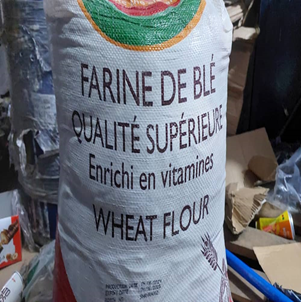In 2024, FFI received three grants from UNICEF to support our global fortification work, enabling us to help develop large-scale food fortification programs and provide technical guidance to public, private, and civic stakeholders. In alignment with UNICEF and FFI’s missions, these programs aim to improve nutrition outcomes for children and women worldwide.
Developing Fortification Programs in Eastern and Southern Africa
In July 2024, FFI and UNICEF’s Eastern and Southern Africa Regional Office (ESARO) started a project to build the capacity of fortification programs in 10 countries: Angola, Comoros, Ethiopia, Kenya, Mozambique, Namibia, Rwanda, South Africa, Tanzania, and Zimbabwe. Through the project, which runs until December 2025, FFI will collaborate with UNICEF country offices, government stakeholders, private sector food producers, civil society advocates, and key regional partners such as the Southern Africa Development Community (SADC) and the Eastern, Central, and Southern Africa Health Community (ECSA) to support fortification programs’ strategic development, design, legislation formulation, and capacity building for monitoring and regulation.
Key goals and achievements toward these goals in 2024 include:
- Designing effective fortification programs: FFI and its partners have made significant progress in designing fortification programs in Angola, Comoros, Rwanda, Namibia, and Zimbabwe, with several outputs completed and others underway. In Angola, FFI finalized a fortification strategy to guide multisectoral fortification planning efforts. In Comoros, FFI conducted a fortification feasibility assessment that identified wheat flour and rice as fortification opportunities for the government, which is seeking to design a fortification program. In August 2024, FFI traveled to Zimbabwe to provide technical support for the development of national food fortification standards. FFI drafted a report based on findings and recommendations from this visit.
- Strengthening regional coordination: FFI continued its outreach and collaboration with regional partners to ensure national fortification strategies and policies are harmonized.
- Improving monitoring and regulation: Efforts to improve fortification monitoring and regulation in Ethiopia, Mozambique, South Africa, and Tanzania are ongoing, with activities planned for 2025.
While significant strides were made in 2024, efforts will continue in 2025 to ensure the successful implementation of fortification programs across the region.
Advancing Wheat Flour Fortification in Azerbaijan
Beginning in September 2024, FFI partnered with UNICEF Azerbaijan and the Azerbaijan Food Safety Agency (AFSA) to help establish a wheat flour fortification program aimed at reducing the high rates of anemia and micronutrient deficiencies in the country. A 2013 national nutrition survey found that 40% of pregnant and 38% of non-pregnant women were anemic. The survey showed that more than half of anemic women were iron deficient, and folate and vitamin B12 deficiency were also present, putting women’s and children’s health at risk.
To address this burden, the Azerbaijan Government initiated a policy pathway for wheat flour fortification to be mandated, established a working group of millers to start fortifying wheat flour, and sought technical assistance from UNICEF Azerbaijan and FFI to pave the way for a fortification program.
Project activities, which continued through May 2025, included technical assistance to:
- Educate government representatives and millers on wheat flour fortification by facilitating a tour of an Ardent Mills wheat flour mill in Chattanooga, Tennessee
- Advise the millers’ working group
- Develop national fortification standards that align with World Health Organization guidelines
- Create tailored standard operating procedures (SOPs) for millers
- Support a communications plan for public education and awareness
In September 2024, FFI staff traveled to Baku, Azerbaijan, to consult with public and private stakeholders and understand fortification needs, gaps, and context. FFI also attended the Eurasia Chapter of the International Association of Operative Millers’ Annual Conference, where FFI met with Azerbaijani millers and suppliers.
Through training, stakeholder collaboration, and public education, the project seeks to ensure sustainable implementation and improved nutrition in Azerbaijan.
Photos: Representatives from the Azerbaijan Food Safety Agency, FFI, and UNICEF Azerbaijan visit a mill in Azerbaijan. (FFI)
Reshaping Food Systems Through Large-Scale Food Fortification
A third grant to FFI supports UNICEF’s efforts to integrate fortification into global food systems to address malnutrition. UNICEF reported that one in three children under five years old is not growing well due to malnutrition. To address these challenges, UNICEF’s 2020-2030 Nutrition Strategy focuses on improving the quality of children’s diets, food environments, and food practices—all aspects of a food system.
FFI’s planned activities, which will take place 2024-2025, include the following.
- Scoping review: Identifying existing research and documents on food systems and fortification.
- Key informant interviews: Engaging experts to pinpoint gaps, challenges, and opportunities for the integration of fortification into food systems.
- Evidence-based recommendations: Formulating actionable strategies to integrate fortification into food systems.
- Scoping exercise: Mapping the global fortification landscape to identify regional and country-level opportunities.
- Lessons learned: Documentation of regional fortification initiatives to support evidence-based improvements and cross-country sharing



